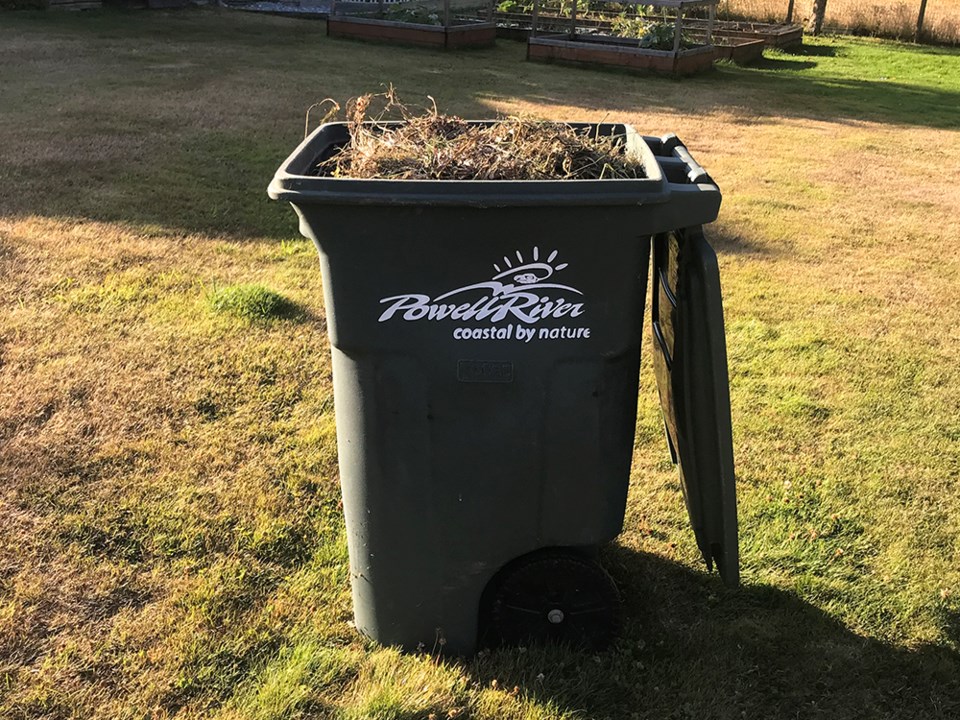City of Powell River is receiving a BC government grant of $346,667 to expand its organics pilot program to involve the entire city.
According to a media release from the province of BC, new or expanded organic-waste-processing facilities and organic collection programs are being funded under the province’s CleanBC Organic Infrastructure and Collection Program.
City chief administrative officer Russell Brewer said the city has to wait until the new Powell River Green Waste Company organics facility is built before expending the funds on the carts necessary for the program. Powell River Green Waste was chosen in June by qathet Regional District (qRD), which has the responsibility for solid waste. The composting facility will initially be located at the Sunshine Disposal and Recycling facility at 4484 Franklin Avenue, and will eventually locate to a facility south of Powell River in a remote setting to establish the final facility capable of process up to 3,000 tonnes of food scraps and yard waste per year, according to a qRD media release.
“It’s kind of a chicken and egg situation,” said Brewer, in an interview with the Peak. “We have to wait until the organics facility is up and running and can take everyone’s organic waste. It will take some time to procure the bins.
“Part of the overall project is the third garbage truck. It will likely not be until later in 2022, assuming everything lines up, until we can fully implement organics collection and processing.”
Brewer said the city has until March 2024 to expend the grant money.
He said the city has been operating an organics collection pilot project on a trial basis, with a small sample of Powell River homes involved. The city has to truck the organics to Sechelt for processing because there is not currently a facility in the qathet region.
“People get frustrated because it seems like the trial is going on forever, but it’s been tied to getting a composting facility operational,” said Brewer.
He said the grant outlines an estimated project cost of $920,000, but of that total, $400,000 is for the third garbage truck, which is in the city’s financial plan for 2022, out of the equipment reserve. The provincial grant share of the procurement of the carts is actually 66 per cent.
“The city’s share is 33 per cent so it’s one-third dollars, which is great news,” said Brewer.
He said the third truck is essential to the expanded program.
“We are already stretched with the two trucks, just to keep up with the recycling and garbage,” said Brewer. “You throw another 5,000 or so households into the organics collection and we need the third truck.
“We also get stretched when trucks go down for maintenance so it will help with that as well.”
Brewer said establishment of an organics program and the concept of zero waste is built into city council’s strategic plan.
“It’s consistent with the regional solid waste plan,” said Brewer. “Council has been wanting to improve curbside pickup and compost. It’s all part of the diversion plan.
“Lots of people do compost but some of that larger yard waste and greenery, it would be nice to have the option to slip it in there, have it picked up and composted locally. Soil will become available locally.”
According to statistics released by the province, organic waste represents 40 per cent of material sent to landfills and generates 3.5 per cent of the province’s greenhouse gas emissions.
The city composting program will divert a substantial amount of solid waste that is currently being barged to Rebanco, Washington.
“The more we can divert and use locally," said Brewer, “the better we all are.”

.jpg;w=120;h=80;mode=crop)

